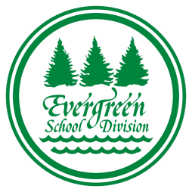Reading in the Middle Years “Not for the faint of heart” Accelerated Reader at our School
As I pointed out in my Summer of 2016 submission to The Manitoba ASCD Journal, challenges emerge for both students and teachers when it comes to reading instruction at middle school. Traditionally, middle school teachers do little formal reading instruction based upon their assumption that students will come to middle school as “readers”, although we are well aware that can not always be expected. It’s also often the case that middle school teachers seldom have formal training to teach reading even when the will is present. Middle schoolers themselves are torn by the the dramatic physical and intellectual changes that occur and gradually redefine their relationships with both adults and peers during this period.
It is also in middle school that the first signs of disengagement with school can emerge in students, and this can become especially profound in reading habits. A multiplicity of research articles detail the decline in reading that occurs in middle school, and even more alarming is evidence of apathy towards reading in general. Our school had a similar experience with the added challenge that student survey’s indicated our students were reading even less then what was the typical norm for middle schoolers. In an earlier Blog entry (April 14/16) I detailed the variety of strategies we undertook to not only increase the amount of independent reading our students were doing, but also their overall achievement levels. I would like to highlight just one of those strategies in this entry - Accelerated Reader.
Accelerated Reader is a software program created by Renaissance Learning for K-12 to monitor the practice of reading. It’s actually based on a very simple idea. The program offers computerized tests on a wide variety of books and students achieve points for the number of questions they get correct. A books point value is assigned by its level of difficulty and students at any time can log in and see how many points they have accumulated. Most schools then follow up with recognitions for students based upon the points they have collected.
The program has a huge and ever increasing data base of tests and schools can actually request tests for books if they wish. An additional bonus for our school library is that the program identifies the reading level of books so that school librarians can then colour code the books and students know exactly what books match, and then challenge their reading levels. This is important because one of the additional frustrations that occurs for middle schoolers is that some want to read a book that they feel is “mature” or “cool”. This can then lead to a student seeking out a popular and “thick” book for which they don’t yet have the skills to read, leading to additional frustration and apathy.
It’s important to note that Accelerated Reader does not, nor does it intend to teach reading. Rather it’s a tool to encourage or motivate students to read independently. At our school the program is available to students if they wish to participate, as it is completely voluntary. Many students just don’t require any additional incentive to read or love reading. However, many students do seek and respond to challenges and recognition. I recall the experience of one of my own children, who being a very goal driven personality, began to read more independently in middle school once presented with the challenges of Accelerated Reader. Research tells us that reading “more” is one important element in reading “better”! As one researcher noted, “the majority of reading difficulties are the result of a lack of experience with print, rather then a lack of ability”.
Accelerated Reader has aided us in creating a culture of reading, and celebrating reading at our school. We have also been able to solicit community involvement in the program through the support of our Parent Council who financial support the prizes and recognitions. For those students who are most engaged and motivated to participate there is the additional celebration of becoming a member of the “100 Club” - those students who have accumulated the highest number of points. Accelerated Reader recognitions are now a monthly and highly anticipated event at our school, providing recognition to students of all reading abilities and just one way through which our school has improved reading achievement.


